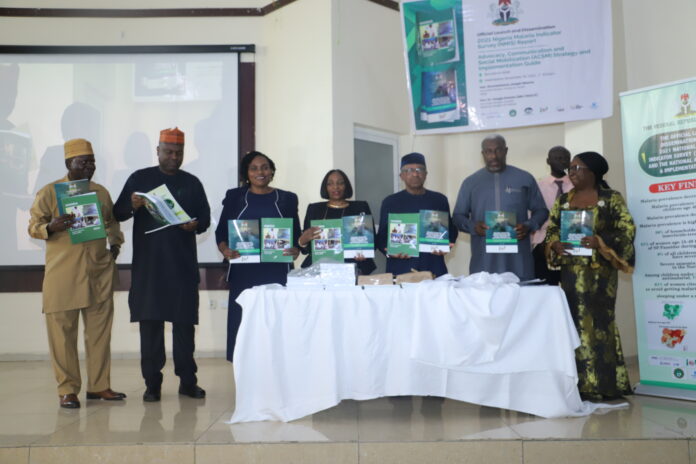As part of Federal Government’s efforts towards combating malaria in the country, the Honourable Minister of Health, Dr Osagie Ehanire, has launched two documents for dissemination to stakeholders and the general public.
The documents are:- the 2021 Nigeria Malaria Indicator Survey (NMIS) report and the Advocacy Communication and Social Mobilization (ACSM) strategy and implementation guide.
Speaking at the official launch of the documents on Wednesday, 30th November, 2022 in Abuja, Dr Ehanire said that the documents provide the necessary framework for stakeholders to review previous efforts in order to make informed decisions that would bring about behavioural change, aimed at eliminating malaria in the country.
The Minister noted that, Malaria was a major public health challenge in Nigeria and that the disease constitutes a huge epidemiologic burden and continued to cripple the economic development of the country.
He also noted that malaria was a leading cause of mortality and morbidity in Nigeria, with young children and pregnant women mostly affected, adding that children under 5 years of age, remained the most vulnerable group affected by malaria accounting for 67% of all malaria deaths.
The Minister however informed that the Federal Government and it’s partners had made consistent and concerted efforts over the years in providing resources towards the elimination of malaria in the country, and this had resulted in millions of lives being saved:
“The results of the 2021 NMIS show a further decline in the national prevalence of malaria to 22% from 23% in 2018, and 42% in 2010.While this may not appear significant at the national level, at the sub-national substantial gains have been observed in several States.
“We are seeing gains being sustained in getting the general population to adopt key preventive measures. 56% of households own at least one Insecticide Treated Nets (ITN) while 36% of household members, 41% of children under 5, and 50% of pregnant women slept under an ITN the night before the survey.
“This underscores the importance of access, and therefore our drive to use all means including rolling mass campaigns to reach the teaming populations of Nigeria with nets.
“Malaria prevalence is still higher in rural areas compared to urban areas. We are observing a shift in the disease patterns among the various age groups with prevalence increasing with age, and those more than 5 years having more episodes of malaria (not tracked in the current NMIS).
“These call for some shifts in the way we do things especially in promoting health seeking behaviours within the general populace,” he added.
Speaking further, Dr Ehanire expressed the optimism that the utilization of the 2021 NMIS report, Malaria ACSM Strategy & Implementation Guide and indeed other malaria thematic and strategic documents by all stakeholders will enable the country re-align with the performance framework of the National Malaria Strategic Plan (2021 – 2025), the National Health Strategic Development Plan, the Sustainable Development Goals (SDG 3), the Global Technical Strategy (GTS) 2016 – 2030, and the Universal Health Coverage (UHC).
In his remarks, the Honourable Minister of State for Health, Hon. Joseph Ekumankama, commended all development partners and key stakeholders, for their continuous collaboration and support to the Ministry, adding that the two documents would fastrack and improve malaria interventions as well as ensure that targets are met.
Earlier in his welcome remarks, the Permanent Secretary, Alhaji Mahmuda Mamman noted that the two documents were conducted and developed in 2021 despite the challenging implementation period posed by the COVID-19 pandemic at the time.
He said the 2021 NMIS report provides the country and partners the necessary baseline information with which the achievements of the current strategic plan would be benchmarked while the ACSM strategy and implementation guide would provide direction on the implementation of ACSM activities to improve uptake of high-impact interventions that would lead us to achieving the goals and objectives of the malaria strategic plan that aligns with the broader Strategic Health Development Plan.
On her part, National Coordinator, National Malaria Elimination Programme, Dr. Perpetua Umomoihi informed that the essence of having the ACSM Strategy & Implementation Guide was to drive then behavioural change to prevent and eliminate malaria.
Dr Umomoihi also explained that, while knowledge about how to prevent the disease was high, health-seeking behaviours still lagged behind. Therefore, there was need to do things differently to improve acceptability and uptake of malaria interventions among the populace.
Blessing Egbo
PIO
Signed:
Ahmadu Chindaya
Deputy Director/Head, (Media & public Relations)
Federal Ministry of Health.






